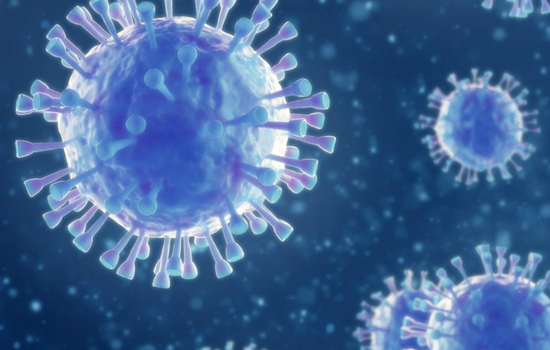The pandemic severely disrupted meningitis prevention and control services, with disease surveillance, laboratory confirmation of cases and outbreak investigations all steeply declining
With the COVID-19 pandemic delaying meningitis vaccination campaigns for more than 50 million children in Africa, the region is at a heightened risk of outbreaks of meningitis type A, which has nearly been eliminated on the continent. In a race against time, World Health Organization (WHO) and partners have launched a roadmap aimed at stopping bacterial meningitis outbreaks by 2030, urging countries to implement it rapidly before the start of the meningitis season in January 2023.
The pandemic severely disrupted meningitis prevention and control services, with disease surveillance, laboratory confirmation of cases and outbreak investigations all steeply declining. Based on reports from countries, WHO found that meningitis control activities were reduced by 50% in 2020 compared with 2019, with a slight improvement in 2021. Benin, Guinea, Guinea Bissau, Nigeria and Togo delayed campaigns with the MenAfriVac vaccine aimed at protecting a total of 50 million children under 12 years of age against meningitis type A.
Historically, meningitis type A was the highest cause of meningitis outbreaks in Africa. In 2010, however, Africa embarked on a journey to defeat meningitis type A when an effective vaccine, MenAfriVac, was developed and deployed. The vaccine was developed in response to a plea from African health ministers after a meningitis type A outbreak in 1996 infected more than 250 000 people and killed over 25 000 in just a few months. With WHO and partners’ support, more than 350 million people in 24 high-risk African countries have received the MenAfriVac vaccine since 2010.
The drive to eliminate this type of meningitis has been immensely successful. While meningitis type A accounted for 90% of cases and deaths before 2010, no new cases have been reported since 2017. Controlling this lethal form of meningitis has led to fewer deaths from meningitis type A and other types of the microorganism. While 50% of people with meningitis died in 2004, in 2021, 95% of cases survived.
“The defeat of meningitis type A is of one of Africa’s biggest success stories in health, but the fallout from COVID-19 hampers our drive to eliminate this bacterial infection as a public health threat once and for all, and could lead to catastrophic resurgences,” said Dr Matshidiso Moeti, WHO Regional Director for Africa. “In prioritizing the response to COVID-19, we must not lose our focus on other health problems. I urge countries to ramp up implementation of the new WHO regional roadmap now, before the meningitis season begins in January 2023.”
The defeat of meningitis type A is of one of Africa’s biggest success stories in health, but the fallout from COVID-19 hampers our drive to eliminate this bacterial infection
While no meningitis type A case has been reported in Africa during the past five years, outbreaks still occur and are caused by other types of meningococcal bacteria. In 2019, 140 552 people in the African region died from all types of meningitis. Major outbreaks caused by meningitis type C have been recorded in seven meningitis belt countries since 2013. In 2021, a four-month outbreak in the Democratic Republic of the Congo claimed 205 lives. Moreover, the African region accounts for the highest number of new meningitis cases globally and is the only region to still experience outbreaks. The continent reports 100 cases of meningitis cases per 100 000 people, the highest incidence in the world.
“More than 400 million Africans are still at risk of seasonal meningitis outbreaks, but the disease has remained off the radar for too long,” said Dr Moeti. “Aside from the toll on human life, outbreaks negatively impact health systems, our fragile economies, and impoverish entire populations forced to contend with multiple health and socio-economic challenges.”
In an ambitious bid to defeat bacterial meningitis in the African region by 2030, the new regional strategy launched today sets out a roadmap for countries to shore up diagnosis, surveillance, care, advocacy and vaccination to eliminate outbreaks, curb deaths by 70% and halve infections. WHO estimates that US$ 1.5 billion will be required between now and 2030 to implement the plan, which if countries fully adopt will save more than 140 000 lives every year in the region and significantly reduce disability.
Meningitis is caused by inflammation of the membranes that surround the brain and spinal cord and is transmitted via a sneeze, saliva or phlegm from the nose and throat of infected persons. Acute bacterial meningitis is one of the deadliest and most disabling forms of the illness. It can cause death within 24 hours and leaves one in five infected people with lifelong disability after infection. In Africa, the meningitis season is particularly long, stretching from January to June.
Although meningitis affects all ages, young children are most at risk, with around half of cases and deaths occurring in children under 5 years of age.
Dr Moeti spoke today during a virtual press briefing facilitated by APO Group. She was joined by Professor François Marc Laforce, Director, Technical Services, Serum Institute of India, and Rhoda Omorodion, Executive Director of Care and Development Centre, Nigeria.
Also on hand from WHO Regional Office for Africa to respond to questions were Dr Akpaka Kalu, Strategic Planning and Policy Team Lead, Communicable and Noncommunicable Diseases; Dr Thierno Balde, Regional COVID-19 Incident Manager; Dr Andre Bita, Regional Meningitis Control Officer; and Dr Phionah Atuhebwe, Vaccines Introduction Medical Officer.







OTHER ARTICLES
Africa Health Brief
Sex, Gender, and Medicine: Understanding Errors in Sex Assignment
Editorial: AFCON – When Football Becomes a Major Public Health Lever in Africa